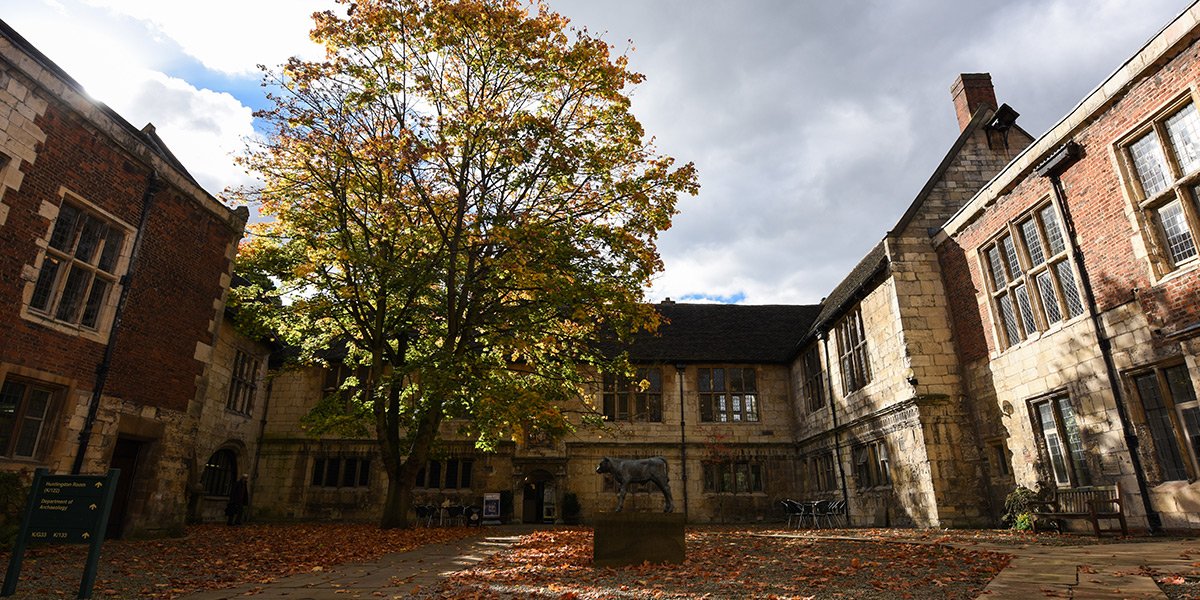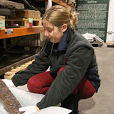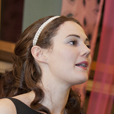View semester dates
2 years part-time,
3 years part-time

Open a doorway to the past of our historic buildings
Year of entry: 2026 (September)
Train in the systematic research, recording, analysis and interpretation of historic buildings.
Through a combination of academic studies, practical training and research projects, you will learn the specialised skills required for the historical research, visual analysis and archaeological recording and interpretation of buildings. You'll gain a foundational knowledge of the history of architecture in the UK, from c.1000 to the present day. The course will allow you to explore current intellectual and professional research priorities in the archaeology of buildings and introduce you to conservation legislation, policy and practice. You'll leave with excellent research and communication skills relating to the research, analysis and interpretation of historic buildings.
The course brings together experts in buildings survey and recording, archive research, legislation and policy, conservation, theoretical interpretation and computer modelling to deliver a dynamic course, which will equip you with the specialist skills and knowledge required for a career in researching, managing, interpreting and conserving historic buildings. Specifically, you will gain valuable experience in archive research, photogrammetry and other 3D recording methods, CAD drawing, and computer modelling of historic buildings.

For me, my MA year was one of the most memorable. Not only did I develop a range of skills that have enabled me to confidently pursue a career in archaeology, but I also made friends for life. I now have an amazing job with English Heritage and I still regularly work with my fellow students.”
You will study 180 credits over the duration of your course:
You will choose two option modules from examples including:
You'll also have the opportunity to choose options from our full module catalogue:
Some option modules combinations may not be possible. The option available to you will be confirmed after you begin your course.
Our modules may change to reflect the latest academic thinking and expertise of our staff, and in line with Department/School academic planning.
You'll complete a 15,000-word dissertation on your research.
You will receive support, advice and guidance from your dissertation supervisor throughout your project. The range of expertise of our staff means we can provide you with guidance on a wide range of topics. You will have one-to-one meetings with supervisors across Semester 2 and the Summer Semester.
Examples of previous dissertations include:
Every course at York is built on a distinctive set of learning outcomes. These will give you a clear understanding of what you will be able to accomplish at the end of the course and help you explain what you can offer employers. Our academics identify the knowledge, skills, and experiences you'll need upon graduation and then design the course to get you there.
| Study mode | UK (home) | International and EU |
|---|---|---|
| Full-time (1 year) | £12,500 | £27,250 |
| Part-time (2 years) This is the year 1 fee. Fees for future years are subject to confirmation. |
£6,250 | £13,625 |
| Part-time (3 years) This is the year 1 fee. Fees for future years are subject to confirmation. |
£4,167 | £9,083 |
Students on a Student Visa are not currently permitted to study part-time at York.
For courses which are longer than one year, the tuition fees quoted are for the first year of study.
UK (home) or international fees? The level of fee that you will be asked to pay depends on whether you're classed as a UK (home) or international student. Check your fee status.
Find out more information about tuition fees and how to pay them.
We don't anticipate there being any additional fees associated with this course. All books and resources you need will be available in the library or online and it isn't mandatory that you buy your own copies. You may wish to set aside a small budget for photocopying, depending on how you like to work.
If you decide to take up an optional placement, you'll have to fund the travel costs to placement yourself.
Discover your funding options to help with tuition fees and living costs.
We'll confirm more funding opportunities for students joining us in 2026/27 throughout the year.
If you've successfully completed an undergraduate degree at York you could be eligible for a 10% Masters fee discount.
We are pleased to work with Chevening Scholars to offer funding for our Masters programmes. Chevening Scholarships provide one year of fully-funded postgraduate study in the UK for international (including EU) students. The scholarships are open to early and mid-career professionals who have the potential to become future leaders.
We have a variety of funding options available within the department.

The quality of teaching I experienced and the opportunity to develop while at York allowed me to pursue my own ideas. Having contact with external speakers also provided an excellent balance between the academic and practical, so that I could develop skills that were relevant to the professional workplace, such as building survey and practical conservation.
You’ll work with world‐leading academics who’ll challenge you to think independently and excel in all that you do. Our approach to teaching will provide you with the knowledge, opportunities, and support you need to grow and succeed in a global workplace.
You will be taught through a combination of lectures, seminars, workshops and site visits with an emphasis on student led-discussion and presentations.
You'll have full access to the main campus library and other University resources, including the Borthwick Institute for Archives.
You will be based on Campus West and in King's Manor.
Our beautiful green campus offers a student-friendly setting in which to live and study, within easy reach of the action in the city centre. It's easy to get around campus - everything is within walking or pedalling distance, or you can always use the fast and frequent bus service.
You will be assessed by a variety of methods. Depending on which modules you opt to take, these could include:
You will gain practical skills and research training that provide excellent preparation for a range of careers. Graduates from the course are now well-established across the heritage sector, in leading architectural practices, archaeological units, heritage organisations and charities, both nationally and internationally. You'll also develop transferable skills that are applicable to a multitude of careers beyond archaeology and heritage.
Students involved in the Heritage Planning Studio have gone on to great success. Most have secured employment as conservation officers in local government and in various national, regional and local heritage bodies.

A few days after handing in my MA dissertation I had a field test and interview for my role as an investigator in English Heritage’s assessment team. My work involves using a wide variety of documentary and cartographic evidence alongside fabric analysis, and my ability to identify, critique and summarise sources rather than passively accept them has been invaluable.
| Qualification | Typical offer |
|---|---|
| Undergraduate degree | 2:2 or equivalent in Archaeology, History of Art, Architectural History or a relevant subject. |
| Other qualifications and experience | The course is suitable for students and mid-career professionals seeking to develop or enhance an academic or professional specialism in buildings archaeology. To find out if your professional experience or qualifications are appropriate, please contact the Course Director. |
| Other international qualifications | Equivalent qualifications from your country |
You will need to submit examples of written work with your application. Please see our guidance on submitting written work.
If English isn't your first language you may need to provide evidence of your English language ability. We accept the following qualifications:
| Qualification | Minimum requirement |
|---|---|
| IELTS (Academic and Indicator) | 6.5, minimum 6.0 in each component |
| Cambridge CEFR | B2 First: 176, with 169 in each component |
| Oxford ELLT | 7, minimum of 6 in each component |
| Oxford Test of English Advanced | 136, minimum 126 in each component |
| Duolingo | 120, minimum 105 in all other components |
| LanguageCert SELT | B2 with 33/50 in each component |
| LanguageCert Academic | 70 with a minimum of 65 in each component |
| Kaplan Test of English Language | 478-509, with 444-477 in all other components |
| Skills for English | B2: Merit overall, with Pass with Merit in each component |
| PTE Academic | 61, minimum 55 in each component |
| TOEFL | 87, minimum of 21 in each component |
| Trinity ISE III | Merit in all requirements |
For more information see our postgraduate English language requirements.
You may be eligible for one of our pre-sessional English language courses. These courses will provide you with the level of English needed to meet the conditions of your offer.
The length of course you need to take depends on your current English language test scores and how much you need to improve to reach our English language requirements.
After you've accepted your offer to study at York, we'll confirm which pre-sessional course you should apply to via You@York.
Get in touch if you have any questions
.jpg)



